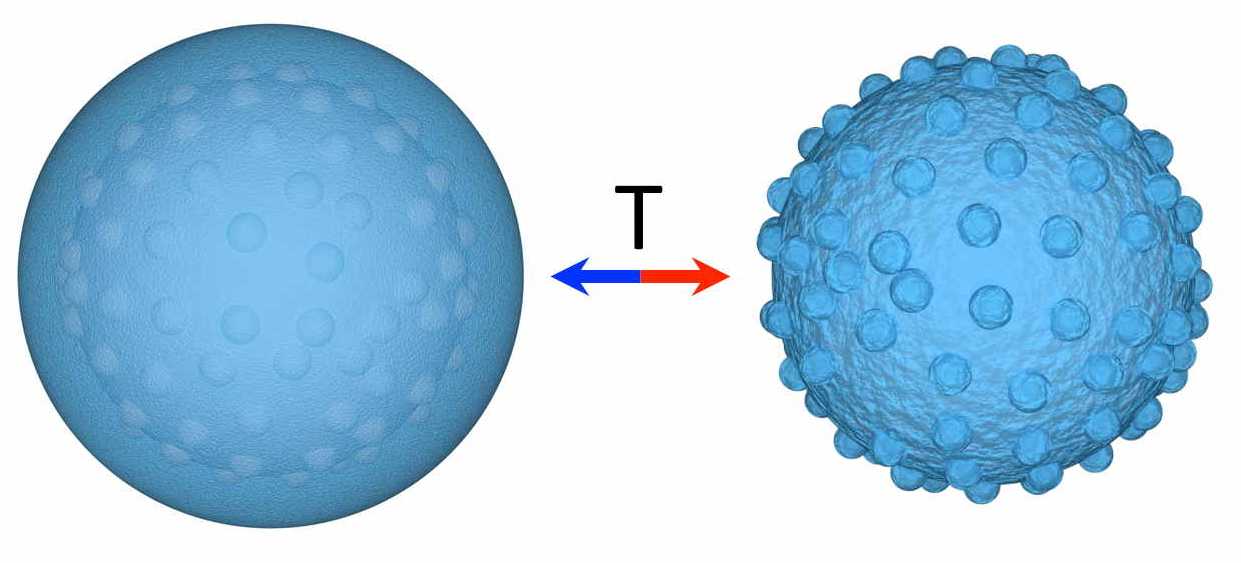Smart Shear-thickening Materials
Researchers from the groups of Prof. Isa and Prof. Spencer have developed colloidal particles whose microscopic contact mechanics can be simply tuned by temperature. As a result, macroscopic flow phenomena, such as shear thickening, are also regulated by temperature. This study sheds new light on the design of smart thickening materials for impact or vibration-absorption applications.

A collaboration between the groups of Prof. Isa and Prof. Spencer has led to the development of colloidal particles whose contact mechanics can be simply tuned by temperature. By synthesizing silica particles with rough surfaces and coating them with precisely tuned temperature-responsive brushes, Hsu et al. have created a system of colloidal particles where adhesion, friction and topography of contacts can be controlled on demand by temperature changes. The polymer, Poly(N-isopropylacrylamide), in short PNIPAM, changes its solubility in aqueous environments when crossing a critical temperature of around 32 C. Below that temperature, the particles are protected by a swollen polymer layer, which masks the underlying surface roughness, prevents adhesive forces at contact and leads to low friction coefficients between two sliding particles. Above that temperature, the polymer brush collapses, unveiling the underlying roughness, triggering the onset of adhesion and of higher friction. Microscopic studies conducted with an atomic force microscope show that these contact features are coupled to macroscopic flow behavior. In particular, the onset of discontinuous shear thickening, a viscosity divergence experienced by dense particulate suspensions above a critical shear stress, can be modulated by changing the contact conditions as a function of temperature. Discontinuous thickening can be delayed or avoided by lowering temperature or promoted and enhanced by heating the system above its critical temperature. These results simultaneously shed new light on the microscopic mechanisms behind shear thickening and offer new perspectives for the design of smart thickening suspensions for applications in impact or vibration absorption.
Exploring the roles of roughness, friction and adhesion in discontinuous shear thickening by means of thermo-responsive particles, Chiao-Peng Hsu, Joydeb Mandal, Shivaprakash N. Ramakrishna, Nicholas D. Spencer & Lucio Isa. Nat Commun 12, 1477 (2021). external page DOI:10.1038/s41467-021-21580-y